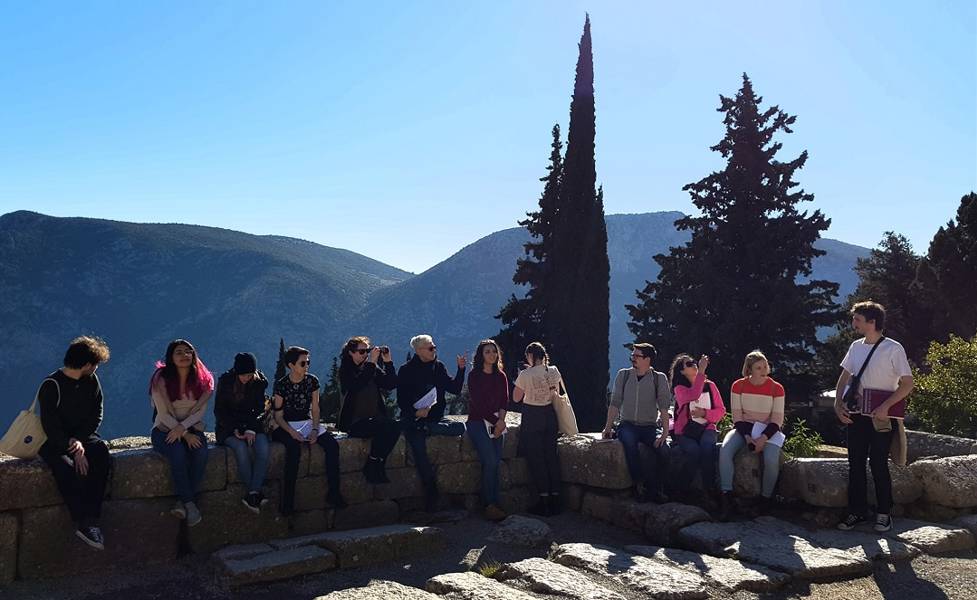
From Hunter to Hellas, a hands-on learning experience
The two-week study abroad program took the Classics students to important cultural sites around Greece—in Crete, in and near Athens, in the Peloponnese, and around Thessaloniki. Classics focuses on the ancient Greco-Roman world, including archaeology, history, language, literature, philosophy, and more, and the trip allowed the Hunter Classics students to see sites tied to their studies firsthand. Hunter professors guided students to important archaeological and historical sites like Knossos, Delphi, Epidaurus, Nemea, and many others they might otherwise have studied remotely but not had the chance to see.
The program also aims to expose students to a variety of aspects of contemporary Greek life to foster cross-cultural curiosity and competency. Cross-cultural lesson number one is right on the syllabus: bring snacks, because, from an American perspective, lunch may be late. This year’s trip included Modern Greek language lessons, a cooking workshop with a Cretan chef, a visit to a honey farm, and more. For many Hunter students, study abroad represents their first exposure to this sort of travel experience.
Programs like Hunter’s Department of Classical and Oriental Studies, serving a diverse student body, help expand access to the humanities, and opportunities like this study trip offer educational and personal enrichment. SNF’s support for the study abroad program in Greece speaks to a belief that access to education should not be limited by students’ financial means.


